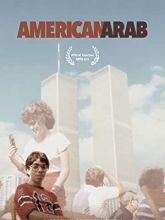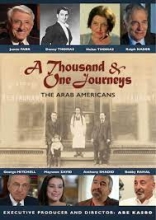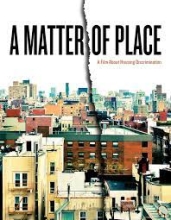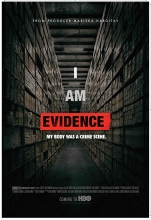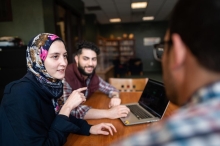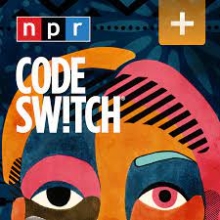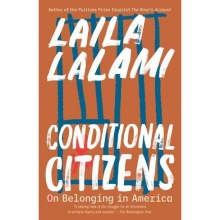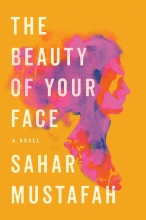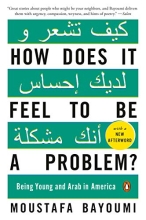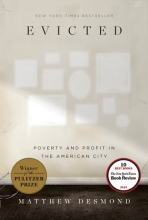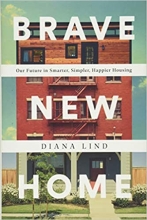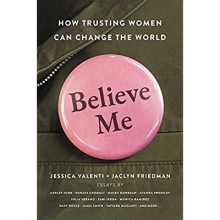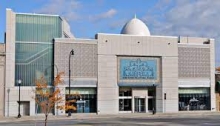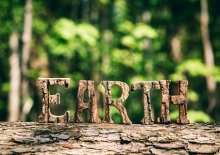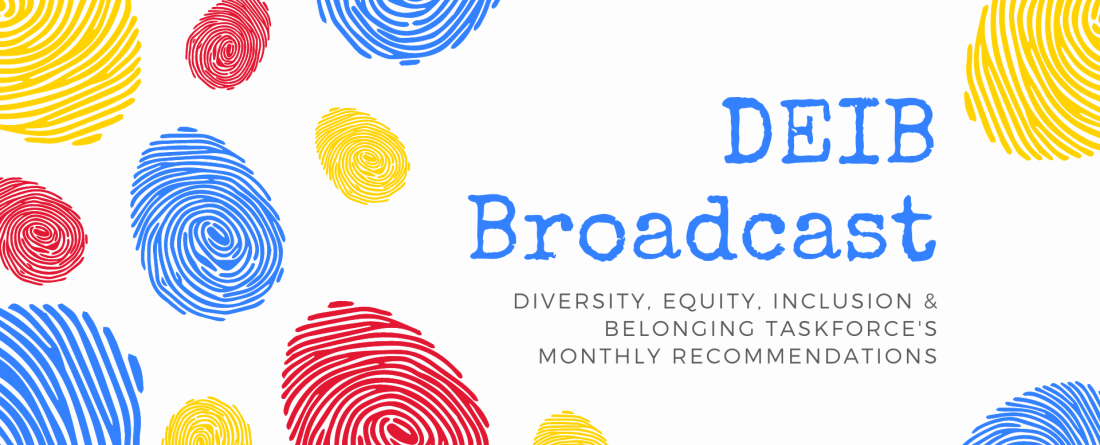
The School of Public Policy is committed to creating a thriving, inclusive environment at the School, where everyone takes an active role in incorporating diversity, inclusion and belonging into their work, classroom and interactions with students and colleagues. To that end, we’re excited to share our monthly recommendations for books, poetry, documentaries, podcasts, art and more for students to refer to on their personal and professional journeys to cultivating diversity, inclusion and belonging.
In the month of April we observe Arab American Heritage Month, Sexual Assault Awareness Month, National Fair Housing Month, Autism Awareness Month, and Earth Day. To that end, here are a few recommendations from SPP staff, faculty, and members of the Diversity, Inclusion and Belonging Taskforce for you to engage with this month!
Watch
American Arab
In this “coming-of-Arab” documentary, director Usama Alshaibi looks at Arab identity in a post-9/11 America through his own life story. Showcasing the diversity of Arabs living in the United States, American Arab sparks a frank conversation about identity and perception, and argues for giving people "the space to be complicated." Alshaibi immigrated to America as a child with his parents and older siblings from Iraq. Throughout the film he talks to a diverse group of other Arab-Americans including American-born Amal Abusumayah, who wears a headscarf and was a victim of a hate crime, the Jassar family who are Iraqi refugees who moved to Chicago to escape the conflict, and Marwan Kamel, a punk musician who is “forming a new, untraditional Arab-American identity without conflict.”
A Thousand and One Journeys: The Arab Americans
A Thousand And One Journeys: The Arab Americans is the untold story of almost 200 years of the contributions of those who immigrated to the United States from the Middle East, North Africa and the Gulf have made to the American fabric. The film vividly paints a portrait of the Arab-American immigrant experience through the stories of people who, like all Americans, immigrated in pursuit of the American Dream, including Senator George Mitchell, Jamie Farr, General John Abizaid, Anthony Shadid, Helen Thomas and more. With historical immigration patterns as background, the film explores the personal stories of Arab-Americans and how they have contributed to the collective American experience. At a time when the media tends to paint Arab peoples and culture with the broad brush of terrorism, it is increasingly important to present a positive image of the many people of Middle Eastern, North Africa and the Arabian Peninsula who have made America their home, and highlight their American journey as an important part of the larger American Experience.
A Matter of Place
The Fair Housing Justice Center has partnered with Kavanagh Productions to produce A Matter of Place, a documentary film that shines a bright light on housing discrimination, one of the most shrouded and misunderstood civil rights issues in America. The film connects past struggles for fair housing to contemporary incidents of housing bias based on race, sexual orientation, disability, and source of income, and presents three stories of people who faced housing discrimination in present-day New York City. They poignantly describe the injuries inflicted on them during these incidents, as well as their resolve to fight for justice. Through experts, civil rights advocates, and fair housing testers, the film also recounts our nation’s often overlooked history of residential segregation and introduces viewers to systemic and pervasive injustices that, despite the existence of fair housing laws, continue to inflict harm on entire communities and individuals throughout America.
I Am Evidence
I Am Evidence tells the story of four survivors whose rape kits went untested for years, following them as they navigate their way through the criminal justice system and learn that so often, the system is broken. The film reveals the historic nature of the way we treat the crime of sexual assault in this country, and the positive effects that occur when perpetrators are held accountable and survivors are given an opportunity for healing and justice.
TED Talks Playlist: The Autism Spectrum
Explore the science of autism, and listen to the stories of people who live with it with this TED Talks Playlist on the Autism Spectrum. From Temple Grandin, diagnosed with autism as a child, who talks about how her mind works and her ability to "think in pictures," which helps her solve problems that neurotypical brains might miss; to Faith Jegede who tells the moving and funny story of growing up with her two brothers, both autistic - and both extraordinary.
Listen
Seen Jeem Podcast
Seen (س) Jeem (ج ) is the Arabic for Q and A. The Seen Jeem podcast highlights the work of contemporary Arab American and ME/NA diaspora writers. Produced by the Arab American National Museum and the Center for Arab American Studies, Season 1 features conversations with 15 poets, novelists, and essayists about their latest work.
Hold My Hijab
Hold My Hijab is hosted by Kay and Dee ranting about everything that comes with being a Black Muslim woman.
Location! Location! Location! (NPR Codeswitch)
In this episode of NPR’s Codeswitch podcast, Ira Glass talks to a 15 year old girl who was kicked out of school after administrators discovered her mother using her grandfather’s address to send her to a school just a few miles away. The difference in education was astounding. A reporter talks to a group of New York City residents about their frustrating attempts to rent an apartment. With hidden microphones, we hear landlords tell the apartment hunters that there’s nothing available. But that’s not necessarily true. And investigative reporter Nikole Hannah-Jones discusses how HUD failed to uphold the Fair Housing Act’s command to change the course of residential segregation in America.
House Rules (This American Life)
Where you live is important. It can dictate quality of schools and hospitals, as well as things like cancer rates, unemployment, or whether the city repairs roads in your neighborhood. In this episode of This American Life, stories about destiny by address.
Read
Conditional Citizens: On belonging in America by Laila Lalami
What does it mean to be American? In this starkly illuminating and impassioned book, Pulitzer Prize Finalist Laila Lalami recounts her unlikely journey from Moroccan immigrant to U.S. citizen, using it as a starting point for her exploration of the rights, liberties, and protections that are traditionally associated with American citizenship. Conditional Citizens taps into history, politics, and literature, and elucidates how accidents of birth - such as national origin, race, or gender - that once determined the boundaries of Americanness still cast their shadows today. Throughout the book, Lalami poignantly illustrates how white supremacy survives through adaptation and legislation, with the result that a caste system is maintained, keeping the modern equivalent of white male landowners at the top of the social hierarchy. Conditional citizens, she argues, are all the people whom America embraces with one arm, and pushes away with the other.
The Beauty of Your Face, by Sahar Mustafah
A Palestinian American woman wrestles with faith, loss, and identity before coming face-to-face with a school shooter in this searing debut. A uniquely American story told in powerful, evocative prose, The Beauty of Your Face navigates a country growing ever more divided. Afaf Rahman, the daughter of Palestinian immigrants, is the principal of Nurrideen School for Girls, a Muslim school in the Chicago suburbs. One morning, a shooter - radicalized by the online alt-right - attacks the school. As Afaf listens to his terrifying progress, we are swept back through her memories: the bigotry she faced as a child, her mother's dreams of returning to Palestine, and the devastating disappearance of her older sister that tore her family apart. Still, there is the sweetness of the music from her father's oud, and the hope and community Afaf finally finds in Islam. The Beauty of Your Face is a profound and poignant exploration of one woman's life in a nation at odds with its ideals.
How Does It Feel to Be a Problem?: Being Young and Arab in America by Moustafa Bayoumi
Just over a century ago , W.E.B. Du Bois posed a probing question in his classic The Souls of Black Folk: How does it feel to be a problem? Now, Moustafa Bayoumi asks the same about America’s new “problem” in How Does It Feel to Be a Problem? - Arab- and Muslim-Americans. Bayoumi takes readers into the lives of seven twenty-somethings living in Brooklyn, home to the largest Arab-American population in the United States. He moves beyond stereotypes and clichés to reveal their often unseen struggles, from being subjected to government surveillance to the indignities of workplace discrimination. Through it all, these young men and women persevere through triumphs and setbacks as they help weave the tapestry of a new society that is, at its heart, purely American.
Evicted by Matthew Desmond
In Evicted, Princeton sociologist and MacArthur “Genius” Matthew Desmond follows eight families in Milwaukee as they each struggle to keep a roof over their heads. Hailed as “wrenching and revelatory” (The Nation), “vivid and unsettling” (New York Review of Books), Evicted transforms our understanding of poverty and economic exploitation while providing fresh ideas for solving one of twenty-first-century America’s most devastating problems. Its unforgettable scenes of hope and loss remind us of the centrality of home, without which nothing else is possible.
Brave New Home by Diana Lind
Over the past century, American demographics and social norms have shifted dramatically. More people are living alone, marrying later in life, and having smaller families. At the same time, their lifestyles are changing, whether by choice or by force, to become more virtual, more mobile, and less stable. But despite the ways that today's America is different and more diverse, housing still looks stuck in the 1950s. In Brave New Home, Diana Lind shows why a country full of single-family houses is bad for us and our planet, and details the new efforts underway that better reflect the way we live now, to ensure that the way we live next is both less lonely and more affordable. Lind takes readers into the homes and communities that are seeking alternatives to the American norm, from multi-generational living, in-law suites, and co-living to microapartments, tiny houses, and new rural communities.
Believe Me: How Trusting Women Can Change the World
Believe Me brings readers into the evolving landscape of the movement against sexual violence, and outlines how trusting women is the critical foundation for future progress. In Believe Me, contributors ask and answer the crucial question: What would happen if we didn’t just believe women, but acted as though they matter? If we take women’s experiences of online harassment seriously, it will transform the internet. If we listen to and center survivors, we could revolutionize our systems of justice. If we believe Black women when they talk about pain, we will save countless lives. With contributions from many of the most important voices in feminism today, Believe Me is an essential roadmap for the #MeToo era and beyond.
Experience
Arab American National Museum
The Arab American National Museum (AANM) is the first and only museum of its kind in the United States devoted to recording the Arab American experience. AANM’s mission is to document, preserve and present the history, culture and contributions of Arab Americans. The exhibitions cover the Arab world and the history of Arab Americans from the first immigrants who arrived in the late 19th century to today. The museum offers safe spaces for open dialogue and community gatherings and provides educational opportunities for children and students of all ages to expand their knowledge and appreciation of Arab American history and culture.
Anne Arundel County Earth Day Fair
Join the Anne Arundel County Parks and Recreation Department at Lake Waterford Park on Saturday, April 16 from 12:00 - 2:00 p.m. to kick off Earth Day 2022 with the Earth Day Fair. The fair will be held in the main picnic area of the park and is totally free - no registration necessary. Learn about the ways we can protect our planet from different local organizations, including topics on beekeeping, urban farming, and composting.
Resources for Sexual Assault Survivors and Supporters
We can all play a critical role in the healing process if someone we know has been impacted by power-based violence. There is no “cookie cutter” approach to healing after a traumatic event. These websites include both resources from the University of Maryland and beyond:
- University of Maryland Health Center: How to Help a Survivor
- University of Maryland Health Center: Campus Advocates Respond and Educate to Stop Violence (CARE)
- National Sexual Assault Awareness Month Infographic
- Forge: Resources for transgender survivors of sexual assault
- 1 in 6: Resources for male survivors of sexual assault

